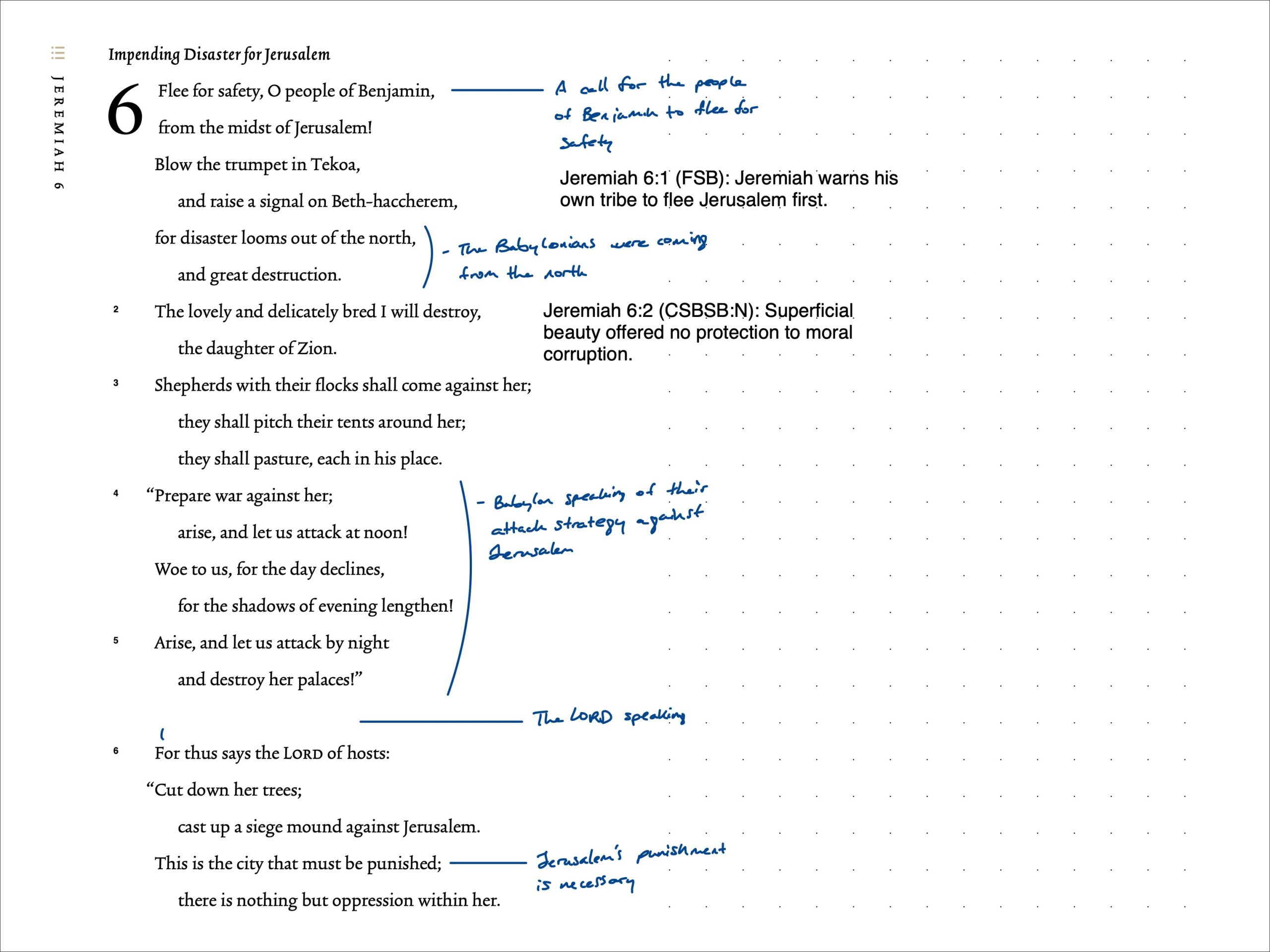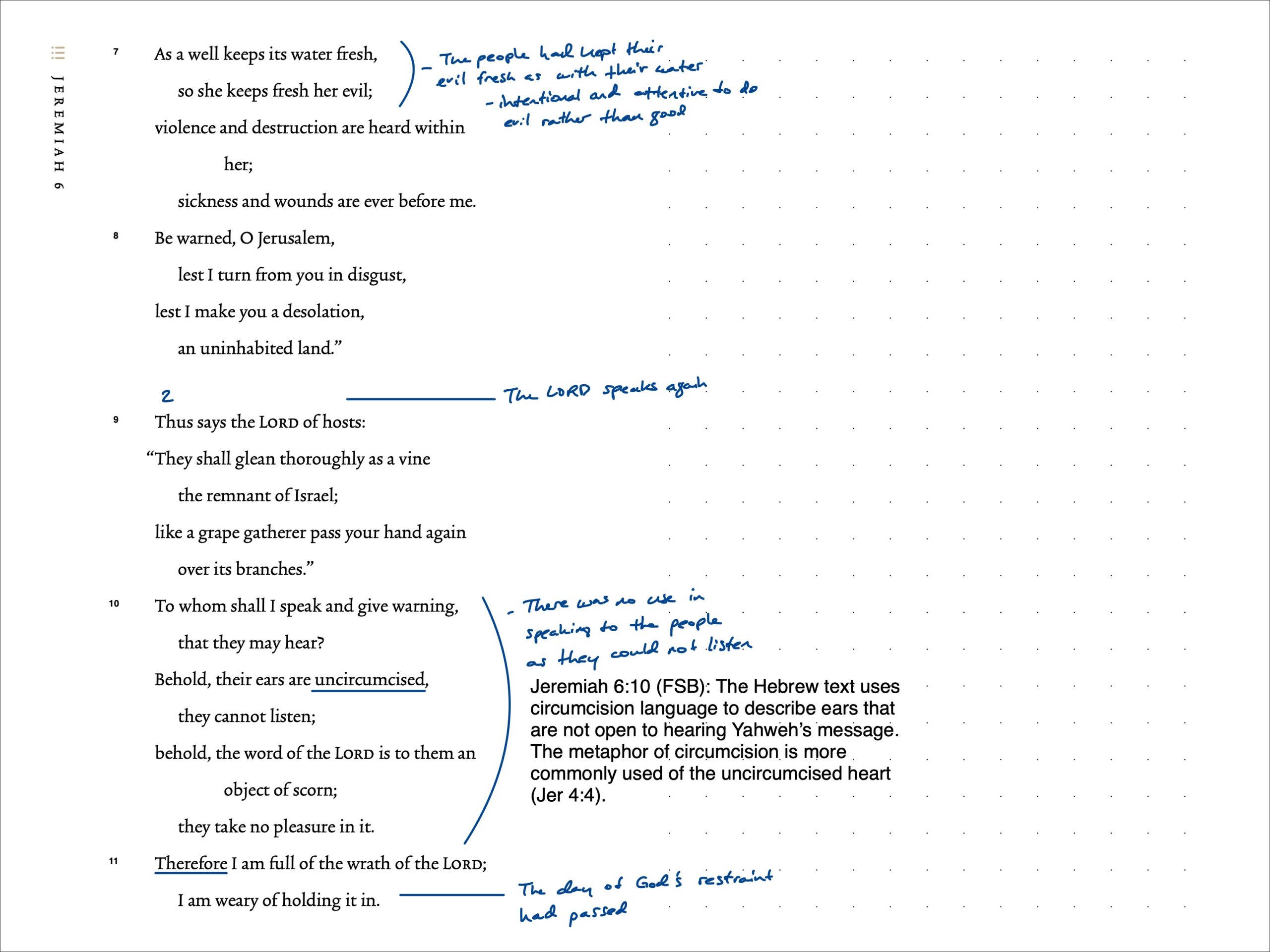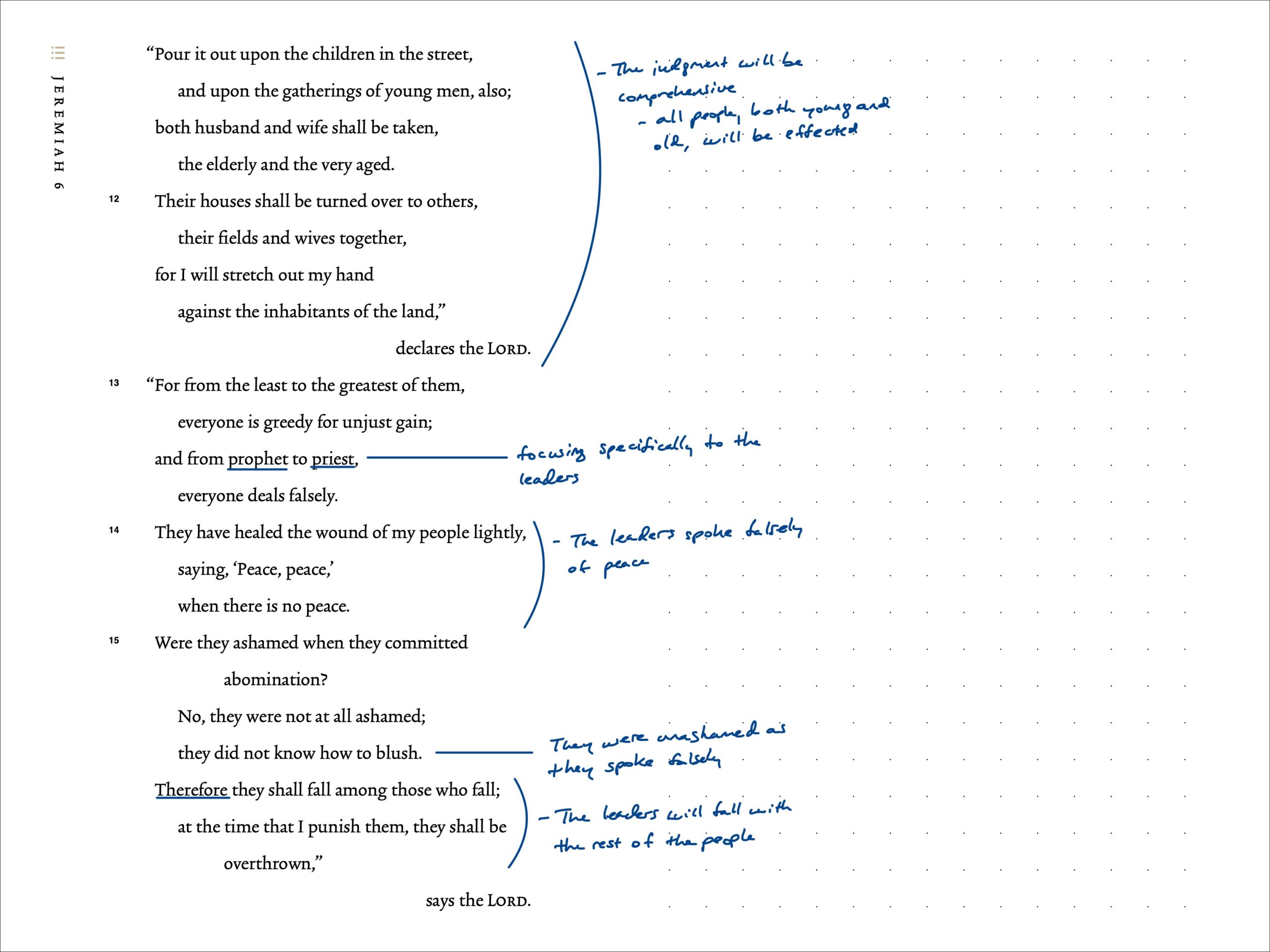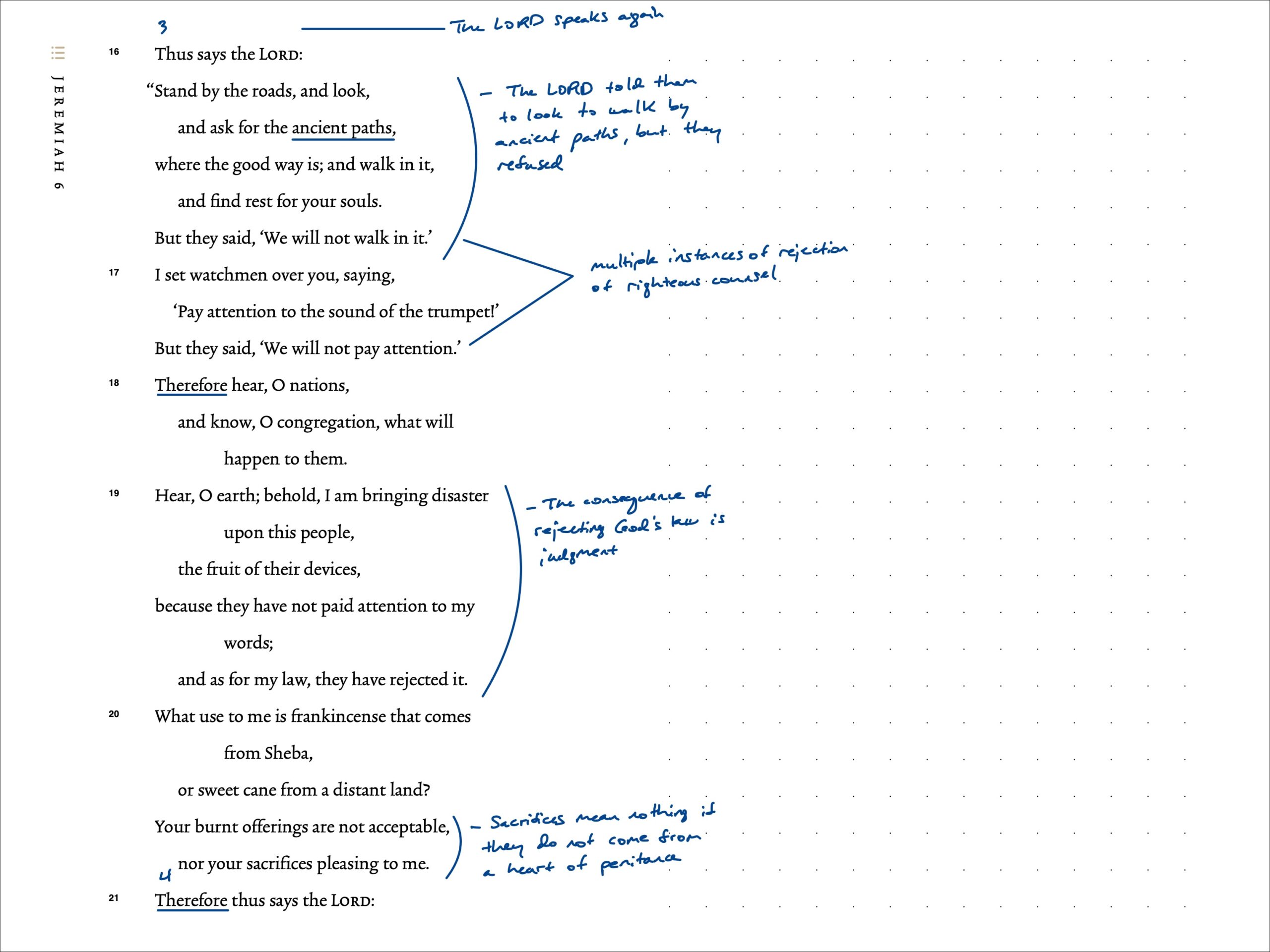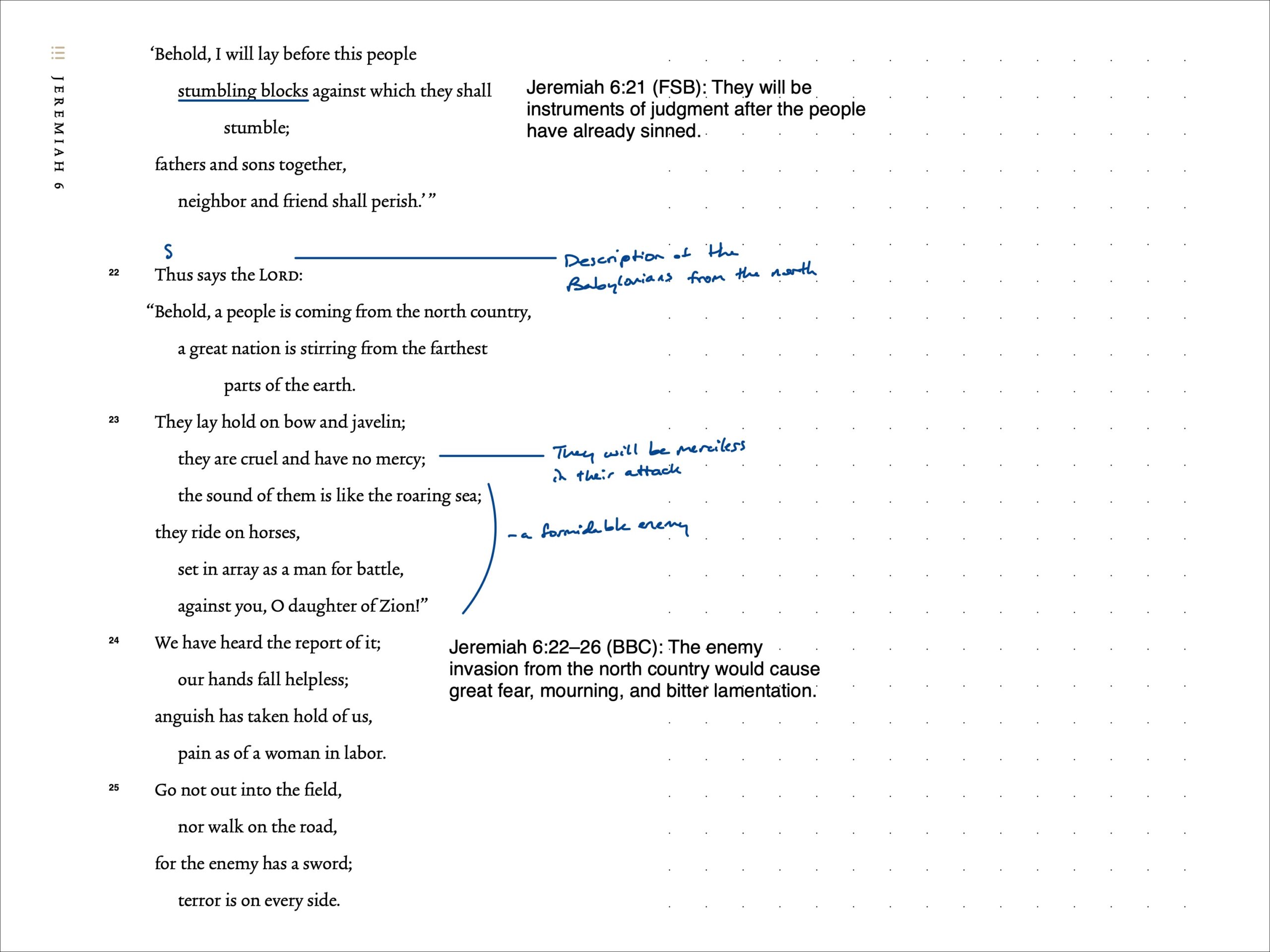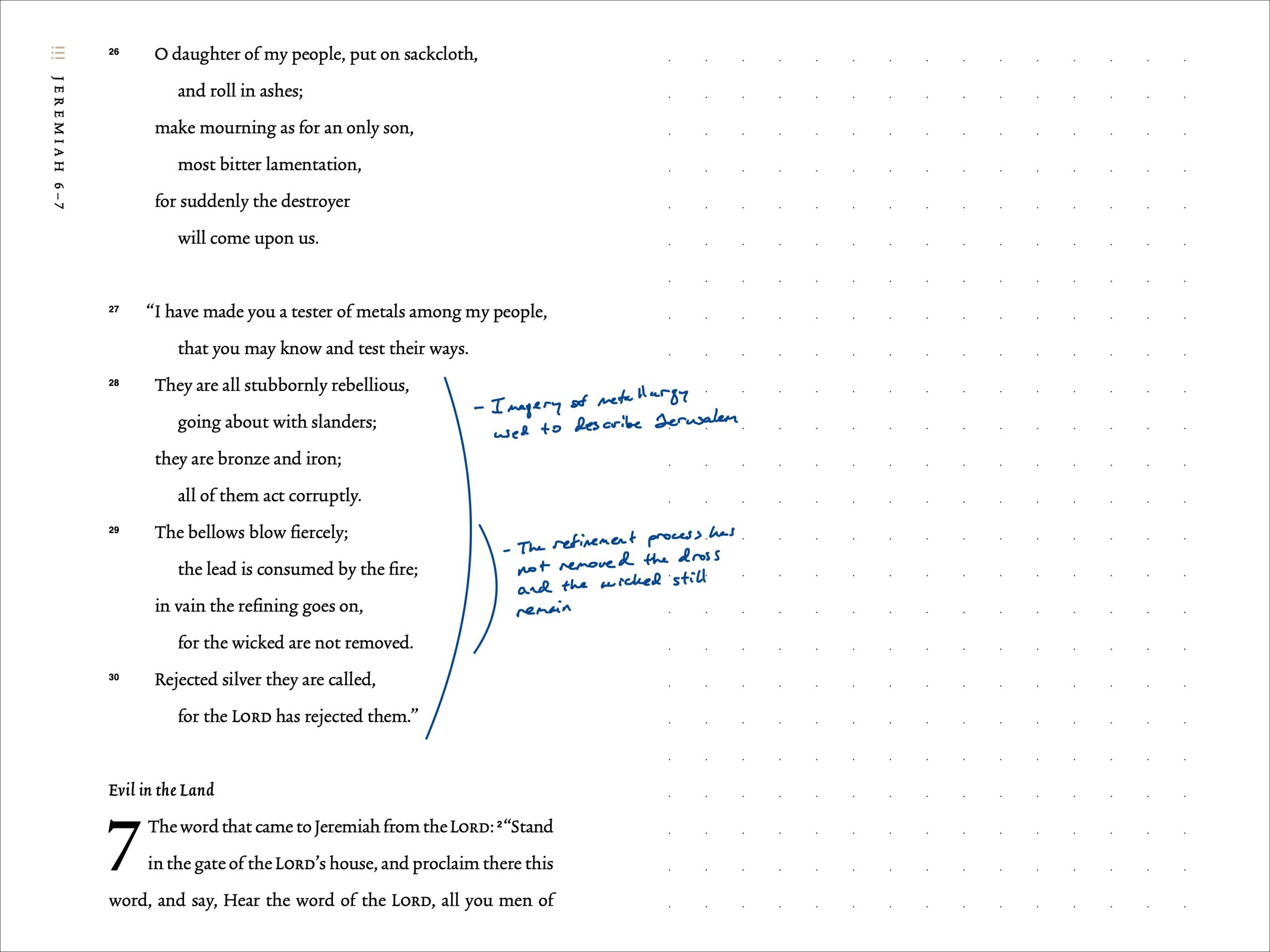| Date | Version | Reading Plan |
|---|---|---|
| @June 28, 2023 | ESV (2016) | ESV Prophets Plan 2023 |
Pericopes
- Impending disaster for Jerusalem
Notes
The chapter opens with a call for the people of Benjamin, Jeremiah’s own tribe, to flee for safety “for disaster looms out of the north” (Jer. 6:1). God will destroy the “lovely and delicately bred” (Jer. 6:2), their superficial beauty offered no protection.
Jer. 6:6 starts the first of five declarations of the LORD in this chapter. The first here describes how Jerusalem’s punishment is necessary, that “the city must be punished (Jer. 6:6). The people had kept their evil fresh as with its water, demonstrating intentionality and attentiveness to do evil rather than good.
Jer. 6:9 is the second declaration in which God speaks of the futility of speaking to the people; they could not listen because “their ears are uncircumcised” (Jer. 6:10). The Hebrew text uses circumcision language to describe ears that are not open to hearing Yahweh’s message. Although circumcision is used here for hearing, it is more commonly used to describe the heart (ex. Jer. 4:4).
In Jer. 6:13, the focus is on the leaders, “from prophet to priest”, and how they spoke falsely of peace. The leadership of the people is often specifically targeted in Jeremiah, showing the high standard to which their offices were to be held. This is also a pervasive throughout the rest of Scripture (ex. priests in Lev. 21:6 and overseers in 1 Tim. 3:1-10).
Jer. 6:16-17 is the LORD’s third speech in which He tells the people to “ask for the ancient paths, where the good way is; and walk in it” (Jer. 6:16) and to “Pay attention to the sound of the trumpet!” (Jer. 6:17). However, the they rejected God’s righteous counsel, saying “We will not pay attention.” (Jer. 6:17). The consequence of their blatant refusal will be judgment.
In God’s fourth declaration, He speaks of laying “stumbling blocks” (Jer. 6:21) before the people. These were to be instruments of judgment after the people had already sinned.
The fifth declaration is a description of the Babylonian invasion from the north. They will be a formidable enemy, merciless in their attack. It will cause great fear, mourning and bitter lamentation among the people of Jerusalem.
The final verses (Jer. 6:28-30) use imagery of metallurgy to describe Jerusalem, that “in vain the refining goes on, for the wicked are not removed.” (Jer. 6:29). The dross of wickedness had not been removed and they had become “Rejected silver” (Jer. 6:30).
Application
So much of the wickedness of the people and of God’s just judgment continues to unfold in this chapter. The theme of God targeting leadership seemed especially noteworthy. Many of the references to priests and prophets in Jeremiah painted their conduct as unbecoming. It shows how God is fully aware and has great sorrow over those in power leading people astray. Their actions are certain to be addressed as we see Matt. 18:6: “but whoever causes one of these little ones who believe in me to sin, it would be better for him to have a great millstone fastened around his neck and to be drowned in the depth of the sea.”
Scripture Journal Notes
Commentaries & Resources
